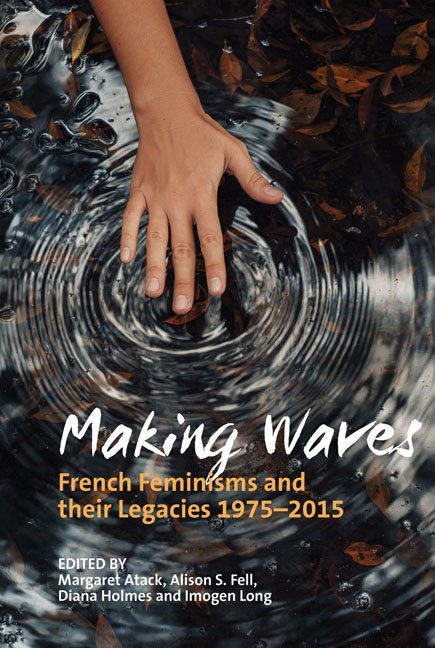Book contents
14 - Third Wave Collective Manifestos: What do Feminists Still Want?
Summary
Thirty-seven years after Les Femmes s’entetent (1975), ‘les Féministes en mouvement,’ a collective comprised of 45 French feminist organisations, published Mais qu’est-ce qu’elles veulent encore! (but now what do they want!), a manifesto whose title reprises yet also expands the secondary title of the original anthology (2012, 9). Published shortly before the 2012 French presidential election, Mais qu’est-ce qu’elles veulent encore! meticulously charts contemporary gender-based discriminations in France and proposes a series of 30 measures to be implemented by the next French president. This book actually illustrates how, since the 1990s, a third wave of French feminism has emerged (Bessin and Dorlin, 2005, 11–12). Since that decade, several organisations have been created, from les Sciences Potiches se Rebellent (1995) to the (in)famous Ni Putes Ni Soumises (2003), to the more recent Collectif 8 Mars pour tout.e.s (2012) or Georgette Sand (2014).
French third wave feminists, whether belonging to specific organisations or not, have, however, been active not just in the streets. As Clémentine Autain – a self-identified third wave feminist and co-founder of the organisation Mix-Cité (1997) – explains, ‘ever since the 1990s, French feminism has gotten back its colours. It expresses itself, it petitions, it fights back’ (2013, 16). Indeed, and similarly to their foremothers who contributed to Les Femmes s’entetent, younger feminists have also released a number of personal and political publications. These appeared as manifestos, opinion pieces, petitions in newspapers, blogs or websites, such as ‘Sexisme: ils se lâchent, les femmes trinquent’ (Sexism: [men] snap, women take the rap) (Le Monde.fr, 2011), a petition by a collective of feminist organisations against the misogyny displayed by the supporters of Dominique Strauss-Kahn in the media; ‘Femmes Interdites de Bande Dessinée’ (Graphic Novels: No Woman's Land) by the Collectif des créatrices de bande dessinée contre le sexisme (the Graphic Novel Creative Women's Collective against sexism), which decries the lack of women artists featured at the Festival International de la Bande Dessinée in Angoulême (Collectif Des Créatrices De Bande Dessinée Contre Le Sexisme, 2016); ‘Le Manifeste des 313’ (under the initiative of Autain), designed to raise awareness about rape (2012);
- Type
- Chapter
- Information
- Making WavesFrench Feminisms and their Legacies 1975–</I>2015, pp. 215 - 228Publisher: Liverpool University PressPrint publication year: 2019

